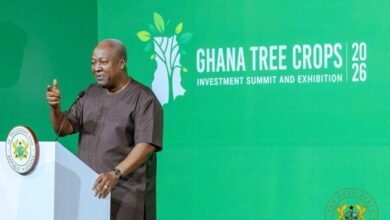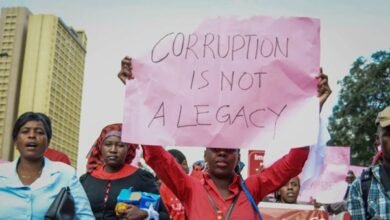ECOWAS : 50 years of regional integration between achievements, tensions, and uncertain future
Founded in 1975 to promote economic and political integration in West Africa, the Economic Community of West African States (ECOWAS) is celebrating its fiftieth anniversary. Despite notable progress in free movement and regional security, the organization is going through an unprecedented crisis marked by the withdrawal of three member countries. This mixed record raises questions about the future of one of the pillars of African integration.

On May 28, 2025, the Economic Community of West African States (ECOWAS) will mark its 50th anniversary. Established in 1975 in Lagos to foster economic and political integration in the region, the organization has become a major actor in regional development, particularly through the implementation of free movement of people and goods and the creation of a common market valued at over $700 billion for around 400 million inhabitants.
However, this golden jubilee is overshadowed by major challenges. In January 2024, Mali, Burkina Faso, and Niger announced their withdrawal from ECOWAS, accusing the organization of drifting away from the ideals of its founding fathers and pan-Africanism. These departures, the first in 50 years of history, led to the formation of the Sahel States Alliance (AES) by these three countries, which also severed their military ties with Western partners to turn toward Russia.
ECOWAS faces internal challenges… We must reinvent our approach to stay relevant in a constantly changing world
The withdrawal of these three countries was a shock to the organization and its members. As ECOWAS President Jean-Claude Kassi Brou pointed out at the 2024 summit: « ECOWAS faces internal challenges, but its goal remains one of peace and prosperity for all its citizens. We must reinvent our approach to stay relevant in a constantly changing world. »
Despite these tensions, ECOWAS continues to play a crucial role in the region. It notably set up ECOMOG in 1990, a regional intervention force during the civil war in Liberia, and adopted protocols on peace, security, democracy, and good governance. According to Alhaji Mohamed Ibn Chambas, former Special Representative of the United Nations for West Africa: « ECOWAS has been a major stabilizing force in West Africa, and without it, many crises would have taken a much more violent turn. »
Necessary reforms
The celebrations for the fiftieth anniversary began on April 22, 2025, in Accra, Ghana, in the presence of several heads of state and government. These festivities are an opportunity to reflect on the organization’s achievements but also on the necessary reforms to strengthen its effectiveness and legitimacy with West African citizens.
On this occasion, Nana Addo Dankwa Akufo-Addo, former President of Ghana and current Chairperson of ECOWAS, stated: « We must reform our organization to make it more inclusive and more responsive to the challenges we face. West Africa cannot afford to remain stuck in the past. »
We must reform our organization to make it more inclusive and more responsive to the challenges we face
As ECOWAS looks to the future with its Vision 2050, aiming to build a more integrated, prosperous, and peaceful region, many challenges remain. The question of reintegrating the AES countries, strengthening democracy, fighting terrorism, and promoting inclusive economic development are all crucial issues for the organization in the coming years.
The withdrawal of the Sahel countries highlights the divide between political aspirations and geopolitical realities. As Senegalese economist and political analyst Dr. Abdoulaye Bathily pointed out: « The future of ECOWAS will depend on its ability to adapt to new geopolitical dynamics, particularly by reconciling security and development needs. »
In an increasingly polarized global context, the organization will also have to face governance challenges and cooperation among its members. But as former UN Secretary-General Kofi Annan reminded: « Regional organizations like ECOWAS play a central role in maintaining peace and stability in Africa, but they must evolve to meet the expectations and aspirations of their citizens. »
The future of ECOWAS will depend on its ability to adapt to new geopolitical dynamics, particularly by reconciling security and development needs
As the organization reflects on its achievements, the path ahead remains fraught with obstacles. Regional unity and economic integration, key drivers of ECOWAS’s ambitions, now more than ever require a complete overhaul of policies and governance strategies.






